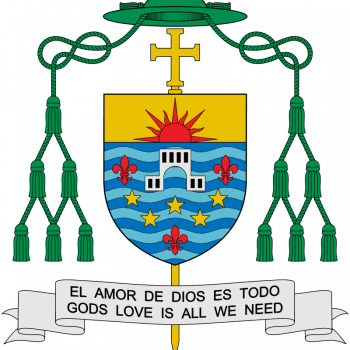Details from the AP:
Roman Catholic-run hospitals can prescribe limited emergency contraception to rape victims, German bishops said Thursday as they sought to contain fallout from an embarrassing recent case in which two hospitals refused to treat a woman.
In a statement issued at the end of a regular meeting in the western city of Trier, the German Bishops Conference said Catholic hospitals still can’t provide drugs that would lead to the death of an embryo.
The German church was under pressure to clarify its stance after two Catholic hospitals in Cologne turned away a rape victim because of concerns over the pill. Cologne’s archbishop, Cardinal Joachim Meisner, said last month that the church was “deeply ashamed by this incident because it goes against our Christian mission.”
At the end of January, Meisner said it was “justifiable” in such cases to provide drugs that prevent conception. He later said he had consulted with Pope Benedict XVI’s secretary, Georg Gaenswein, and was told that “everything is alright.”
For decades, Catholic hospitals have in cases of rape allowed the use of spermicidal wash to impede sperm from reaching an egg and drugs to prevent the victim from ovulating. The rationale is that rape is an act of violence against a woman; to prevent the attack from continuing, a hospital can use drugs to impede conception.
Church teaching, however, holds that life begins at conception, and thus forbids the use of drugs that would intercept, dislodge or abort a fertilized egg, according to the Rev. Robert Gahl, a moral theologian at Rome’s Pontifical Holy Cross University.
“This new determination by the German bishops is in full continuity with church teaching, and specifies how best to implement new pharmaceutical technology,” Gahl said.
UPDATE: A reader passed along this very good overview of church teaching on the “Morning After” pill:
Some have argued that it may be immoral for Catholics to provide any contraceptive measures at all to a woman who has been raped. Such a view is incorrect, however, because a woman who has been sexually assaulted is clearly entitled to protect herself from the attacker’s sperm. The Church teaches that rape is not a unitive act that requires openness to procreation. It is rather an act of violence against another person, and the woman is allowed to take steps to prevent the possible fertilization of her own egg(s). It is permissible, then, for Catholic hospitals to provide their patients with morning-after pills if the following four conditions are met:
- The woman is not already pregnant from prior, freely-chosen sexual activity.
- The woman has been sexually assaulted.
- The woman has not yet ovulated (i.e. has not released an egg from her ovary into the fallopian tube where it could be fertilized by the attacker’s sperm).
- The morning-after pill can reasonably be expected to prevent her from ovulating.











